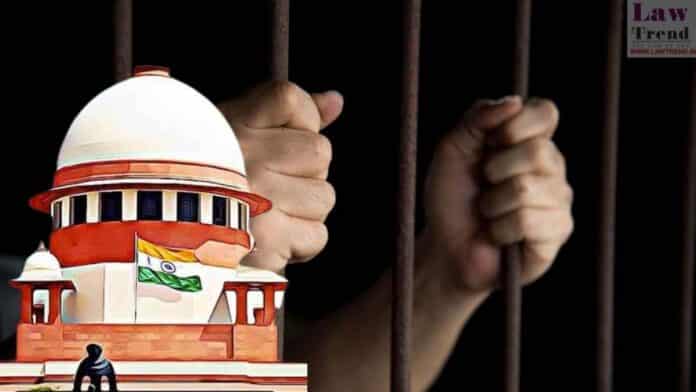In a significant judgment aimed at upholding the dignity and rights of incarcerated persons with disabilities, the Supreme Court on Tuesday directed Tamil Nadu prison authorities to identify such prisoners at the time of admission and ensure that all prisons are equipped with disabled-friendly infrastructure.
A bench comprising Justices J.B. Pardiwala and R. Mahadevan issued comprehensive guidelines emphasizing the need for a humane and inclusive approach to prisoners with disabilities, terming them “among the most marginalised and vulnerable groups” within the criminal justice system.
“This court expresses deep concern over the plight of incarcerated individuals with disabilities. The social and structural barriers they face in society are only magnified within the prison environment,” the bench remarked, underscoring the systemic disadvantage faced by such individuals due to the lack of training and sensitivity among law enforcement and prison staff.
Key Directives Issued
The court directed that:
- Every prisoner should be given the opportunity at the time of admission to declare any disability and communicate their specific needs.
- All prisons must provide rules, regulations, and information in accessible formats including Braille, large print, sign language, and simplified language.
- Wheelchair-friendly infrastructure, accessible toilets, ramps, and sensory-safe spaces must be implemented across all prison premises.
- Dedicated areas for physiotherapy, psychotherapy, and other therapeutic services are to be established.
- Medical officers and staff must undergo training on the rights of persons with disabilities and conduct regular awareness programmes.
- Every disabled inmate must be provided with a nutritious and medically appropriate diet tailored to their needs.
- Life-saving treatments, including physiotherapy and psychotherapy, should be made available on-site or through linked government health facilities.
- A comprehensive audit of all prisons in Tamil Nadu should be completed within six months by a state-level expert committee. Regular periodic audits must follow, aligned with India’s Harmonized Guidelines for Universal Accessibility (2021).
Background of the Case
The directions came on a petition filed by advocate L. Muruganantham, who suffers from Becker muscular dystrophy. He challenged a Madras High Court order awarding him ₹5 lakh compensation for the hardships he faced during imprisonment in a land dispute-related criminal case. His experience prompted the top court to take broader cognizance of the structural inaccessibility of prisons.
The court noted that while some safeguards exist for women prisoners, there is a glaring lack of a legal or policy framework to protect the dignity and rights of disabled and transgender inmates.
Accountability and Compliance
The Supreme Court directed that the Tamil Nadu Director General of Prisons must file a compliance report within three months before the State Human Rights Commission, detailing steps taken to implement the judgment.
It also ordered a review and amendment of the State Prison Manual within six months to bring it in line with the Rights of Persons with Disabilities Act, 2016 and the UN Convention on the Rights of Persons with Disabilities (UNCRPD).
Constitutional and Human Rights Basis
“These directions are issued in the larger public interest to uphold the dignity and healthcare rights of prisoners with disabilities in all custodial settings,” the bench clarified, anchoring the ruling in India’s constitutional guarantees, statutory mandates, and international human rights obligations.




